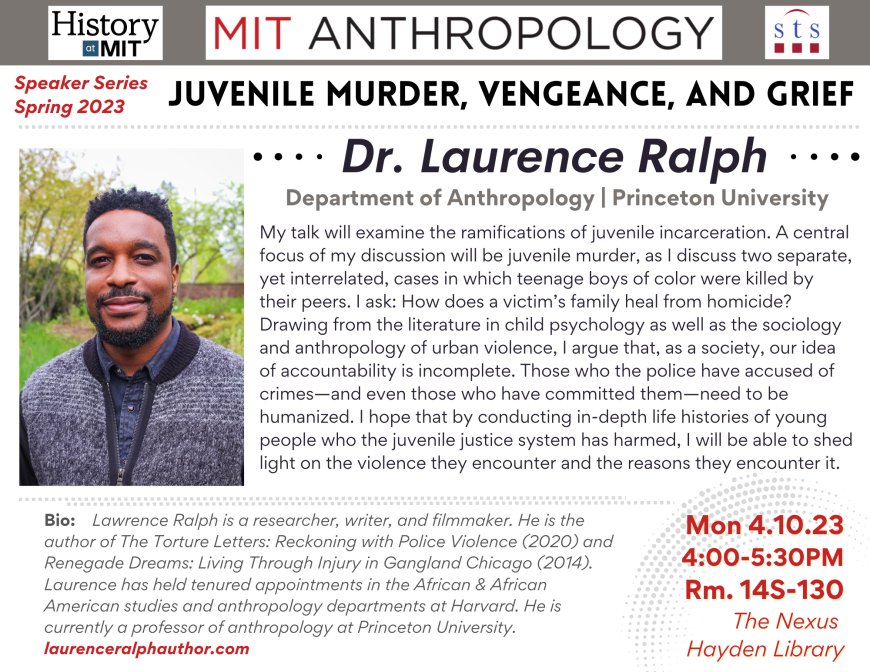Dr. Laurence Ralph Colloquium: "Juvenile Murder, Vengeance, and Grief"

Dr. Laurence Ralph
Princeton University
Monday, April 10, 2023 4:00 - 5:30 PM 14S-130, The Nexus, Hayden Library
Abstract:
My talk will examine the ramifications of juvenile incarceration. A central focus of my discussion will be juvenile murder, as I discuss two separate, yet interrelated, cases in which teenage boys of color were killed by their peers. I ask: How does a victim’s family heal from homicide? Drawing from the literature in child psychology as well as the sociology and anthropology of urban violence, I argue that, as a society, our idea of accountability is incomplete. Those who the police have accused of crimes—and even those who have committed them—need to be humanized. I hope that by conducting in-depth life histories of young people who the juvenile justice system has harmed, I will be able to shed light on the violence they encounter and the reasons they encounter it.
Bio:
Laurence Ralph is a researcher, writer, and filmmaker. His work explores how police abuse, mass incarceration, and the drug trade make injury and premature death seem natural for people of color. His first book, Renegade Dreams (University of Chicago Press, 2014), received the C. Wright Mills Award and the J.I. Staley Prize. His second book, The Torture Letters (University of Chicago Press, 2020), explores a decades-long scandal in which hundreds of Black men were tortured in police custody. The Torture Letters is also the name of his award-winning, animated short film, which is featured in The New York Times Op-Doc series. Laurence’s work has been featured in The Paris Review, The New York Times, The New York Review of Books, The Nation, The Chicago Review of Books, Boston Review, and Literary Hub, to name a few.
Laurence has held tenured appointments in the African & African American studies and anthropology departments at Harvard. He is currently a professor of anthropology at Princeton University. Ralph has been awarded many fellowships for his work, some of which include the Guggenheim and Carnegie Fellowships, as well as grants from the National Science Foundation, the Wenner Gren Foundation, and the National Research Council of the National Academies. He is a member of the Institute for Advanced Study, the Center for Advanced Study in the Behavioral Sciences, and a fellow of the Radcliffe Institute for Advanced Study.